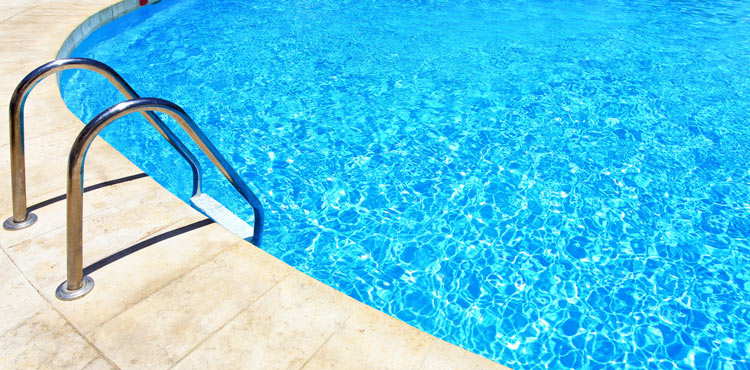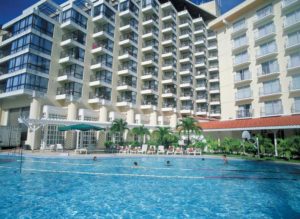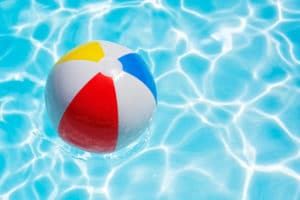
A commercial drowning accident lawsuit may be an option for families of those who have drowned in a swimming pool as a result of negligence on the part of the swimming pool owner. Swimming pool owners have a duty to make their premises reasonably safe and free from any known hazards or dangers. People who have been injured, or the families of those who have drowned or been injured in a commercial drowning accident may be able to file a lawsuit and recover compensation with the help of a premises liability attorney.
For more information, contact Attorney Group today. We offer free, confidential, no obligation consultations. We can help answer your questions, and if you choose to pursue a case we can connect you with an affiliated commercial drowning accident lawsuit attorney who can assist you throughout the legal process.
Commercial Drowning Accident Lawsuit
Swimming pools offer recreation and relief for many people, especially during hot summer months. Although most swimming pools, spas, hot tubs and water parks are safe for public and private use, they can be dangerous if the swimming pool or other facilities are not properly taken care of and maintained.
Property owners have a duty to make their premises reasonably safe and free from any known dangers. This includes hotel, public and privately owned swimming pools. In many cases, negligence may play a part in both fatal drowning and non-fatal near-drowning accidents. Local, state and federal laws often vary in terms of the obligations that swimming pool owners have, however, they are required to keep the land and other structures on their grounds reasonably safe for authorized visitors.
Other negligent acts that may contribute to a drowning accident include:
- Failure to maintain pool area, including concrete surfaces, gates, and gate latches
- Failure to provide proper supervision of children in and around pool areas
- Failure to employ a lifeguard or failure post adequate warnings regarding the presence (or lack of) lifeguards
- Negligent supervision by a lifeguard on duty
- Failure to look after inexperienced swimmers
- Failure to have pool safety equipment or life saving equipment
If a swimming pool owner is negligent, unsuspecting people, including children, can suffer serious injuries and possibly death. Commercial drowning accidents can happen in a number of places, including hotels, apartment complexes, country clubs, cruise ships, spas, hot tubs and water parks.
Commercial Drowning Accidents
A commercial drowning accident lawsuit attorney notes that thousands of unintentional injuries resulting in death occur every year, including unintentional drowning. According to the Centers for Disease Control and Prevention (CDC), drowning ranks fifth among the leading causes of unintentional injury death in the United States. Other statistics related to unintentional drowning include:
- An average of 3,536 non-boating related, unintentional drownings occurred annually from 2005-2014 in the United States (about ten deaths per day)
- Approximately one in five people who die from drowning are children aged 14 or younger, and for every child who dies from drowning, an additional five receive emergency care for nonfatal submersion injuries
- Nonfatal drowning injuries can cause severe brain damage that could result in long-term disabilities, including memory problems, learning disabilities and permanent loss of basic functioning
In addition to drowning and near-drowning injuries, other accidents can occur in and around swimming pools. Those accidents include slipping and falling, diving board accidents and injuries associated with defective pool equipment, such as broken drains or pumps.
Drowning Risk Factors
According to the CDC, a variety of factors that affect the risk for drowning include:
- Lack of swimming ability – Research has shown that participation in formal swimming lessons can reduce the risk of drowning among children aged 1 to 4 years.
- Lack of barriers – Barriers, such as swimming pool fencing, prevent young children from gaining access to a swimming pool without a caregiver’s awareness. The risk of a child drowning reportedly decreases by 83 percent when a four-sided isolation fence is used compared to a three-side property-line fence.
- Lack of close supervision – Even with lifeguards present, drowning can happen quickly and quietly anywhere there is water, including swimming pools, bathtubs and buckets.
- Location – Most children aged 1 to 4 drown in home swimming pools, while drownings among those 15 years or older generally occurred in natural water settings.
- Alcohol use – Alcohol influences balance, coordination and judgment. The effects of alcohol may also be heightened by exposure to sun and heat.
- Seizure disorders – Drowning is the most common cause of unintentional injury death for people with seizure disorders. Most occur in bathtubs.
Nearly 80 percent of people who die from drowning are male. Additionally, children ages 1 to 4 have the highest drowning rate and among those, most drownings occur in home swimming pools.
Commercial Drowning Prevention

There are a number of ways unintentional drowning can be prevented. Research has found that many people do not have basic swimming skills, leading to an increased risk of drowning in people of all ages. The CDC reports that taking part in formal swimming lessons can reduce the risk of drowning, particularly among children aged 1 to 4 years. Likewise, the use of cardiopulmonary resuscitation (CPR) has been shown to save lives and improve outcomes in drowning victims.
Other tips that can potentially help people stay safe around water include:
- Designation of a responsible adult to watch young children in and around water, including swimming pools
- The buddy system, to ensure that someone is always nearby in case of an emergency
- Provide one-on-one supervision for those with seizure disorders
- Formal swimming lessons to protect young children from drowning as well as constant, watchful supervision when children are in and around the water
- Learn CPR
- Understand that air-filled or foam toys are not to be used as safety devices
- Avoid drinking alcohol
- Understand local weather conditions and forecasts before swimming
For homeowners with swimming pools, the CDC suggests installing four-sided fencing to completely separate the pool area from the house and yard. The fence should be a minimum of four feet high and utilize self-closing and self-latching gates that open outward with latches that are out of reach of children. Additional barriers such as automatic door locks and alarms to prevent unwanted access should be considered as well.
Government Regulations
In 2007, President George W. Bush signed the Virginia Graeme Baker Pool & Spa Safety Act (P&SS Act), which is designed to prevent tragic drain entrapments and eviscerations in pools and spas. The law states that all pools manufactured after December 19, 2008 must be equipped with anti-entrapment devices or systems that ease the suction or vacuum when a drain is blocked or becomes clogged.
Although not a federal law or mandate, the CDC has issued a set of guidelines known as the Model Aquatic Health Code (MAHC). Based on scientific data, research and best practices, the MAHC can be voluntarily adopted or used by local governments to help prevent pool-related issues and problems, including chemical use, bacterial outbreaks and drowning. The code addresses public facilities such as public swimming pools; interactive fountains; waterparks; and pools, hot tubs, and spas in hotels, apartment complexes, and neighborhoods.
Commercial Drowning Accident Lawsuit Settlements
Settlements are agreements reached by parties without the involvement of a court. The following settlements are just a few that have been reached between swimming pool owners and the loved ones of those who have drowned:
- A long-running lawsuit filed in Kane County, Illinois ended when both sides agreed to a confidential settlement in a wrongful death lawsuit after a 21-year old drowned in December 2007. According to the Daily Herald, the young man drowned while swimming with family members at a resort in St. Charles, Illinois. The lawsuit claimed that the resort was negligent due to various safety violations and had been cited multiple time before the drowning occurred.
- In July 2016, a settlement was reached in the case of a teenager who accidentally drowned at an apartment complex in Harrisburg, Pennsylvania. According to the Pennsylvania Record, the 14-year old had been swimming in the deep end of the pool before patrons noticed his body and began to perform CPR. The parents of the boy filed a lawsuit claiming negligence against the apartment complex management for failing to maintain safe premises as well as failing to hire properly trained lifeguards, who allegedly were unable to properly assist in the resuscitation of the teenager. Settlement terms were not disclosed.
- The family of a 12-year old boy who drowned in 2014 reached a settlement with a Minnesota school district for $3 million. According to the Star Tribune, the young boy was roughhousing with other classmates when the accident occurred. The accident prompted several school districts in the state to reexamine their swimming pool safety policies, but measures that would have required public schools to provide swimming lessons were opposed due to potential costs.
How a Commercial Drowning Accident Lawsuit Attorney Can Help

Swimming pool owners have the obligation to perform routine inspections of their grounds to find any dangers or defects that could cause someone harm and to provide clear warnings of known hazards before taking the appropriate steps to remove the dangers and prevent possible injuries to their customers or guests. If they fail to do so and an individual is harmed or drowns, the law allows an injured party to pursue damages to recover those losses, including:
- Medical expenses
- Pain and suffering
- Lost wages
- Loss of ability to earn
- Scarring and disfigurement
When a swimming pool owner’s negligence results in the death of another person, family members of the person killed may recover damages for the wrongful death of their loved one with the help of a commercial drowning accident lawsuit attorney.
For more information, contact Attorney Group. After you contact us, an attorney will follow up to answer questions that you might have. There is no cost or obligation to speak with us, and any information you provide will be kept confidential.
Please note that the law limits the time you have to pursue a claim or file a lawsuit for an injury. If you think you have a case, you should not delay taking action.





